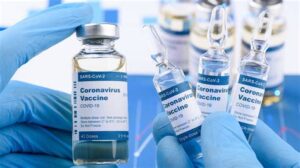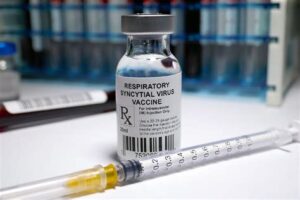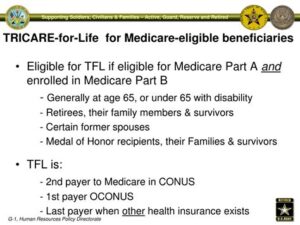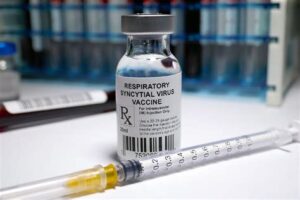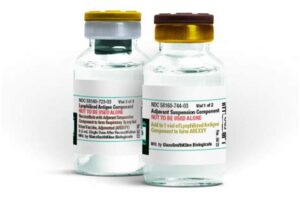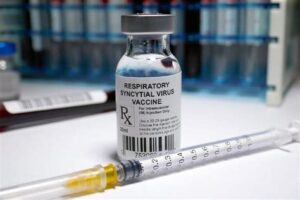Explore the significance, development, effectiveness, risks, and future prospects of RSV vaccines for enhanced understanding and informed decisions.As respiratory syncytial virus (RSV) continues to pose a significant health risk, particularly to infants and vulnerable populations, the development of effective vaccines has become increasingly important. The recent introduction of the RSV vaccine Arexvy marks a pivotal moment in our battle against this common yet potentially severe virus. In this blog post, we will delve into the fundamentals of the RSV vaccine, exploring its development, effectiveness, and the potential risks and side effects associated with it. Additionally, we’ll look ahead to the future of RSV vaccines and what it might hold for public health. By understanding these aspects, we can better appreciate the significance of Arexvy and its role in protecting individuals and communities from RSV.
Understanding RSV Vaccine
Respiratory Syncytial Virus (RSV) is a common virus that can cause serious respiratory illnesses, particularly in infants, young children, and the elderly. The RSV vaccine, specifically the Arexvy vaccine, has been developed to enhance protection against this potentially severe illness. Understanding the workings and the importance of this vaccine is crucial for both healthcare providers and the general public.
The Arexvy vaccine has shown promise in clinical trials, indicating a strong immune response in individuals receiving the vaccine. It primarily works by stimulating the body’s immune system to recognize and combat the RSV virus, significantly reducing the likelihood of severe illness and hospitalization. This is especially important for vulnerable populations who are at higher risk for complications from RSV infection.
Vaccination against RSV is not just about individual protection; it also contributes to community immunity. When a significant portion of the population is vaccinated, the overall spread of the virus can be slowed down or even halted, protecting those who cannot be vaccinated, such as infants too young to receive the vaccine. Understanding the benefits of the RSV vaccine, including Arexvy, is essential to promoting public health and ensuring the well-being of at-risk populations.
Development of RSV Vaccines
Respiratory Syncytial Virus (RSV) has long been recognized as a significant cause of respiratory illness, especially in infants and the elderly. The development of RSV vaccines has been a critical focus for researchers and healthcare professionals. Over the years, various approaches have been taken to create an effective vaccine that could mitigate the impact of this virus.
The earliest attempts at creating an RSV vaccine date back to the 1960s. Initial vaccine trials were met with challenges, as some of the candidates resulted in enhanced disease upon exposure to the virus. This setback led to a deeper understanding of the viral mechanisms and the immune response required to develop a safe and effective vaccine.
| Year | Vaccine Type | Outcome |
|---|---|---|
| 1960s | Formal Inactivated Vaccine | Enhanced illness in infants |
| 1980s | Live Attenuated Vaccine | Promising results in animal studies |
| 2000s | Recombinant Vaccines | Shows effectiveness in trials |
| 2020s | mRNA Vaccines | Currently under investigation |
In recent years, significant advancements in vaccine technology have been made. The advent of mRNA vaccine technology opens exciting possibilities for RSV vaccine development. Researchers are optimistic that this method could overcome previous hurdles by eliciting a strong and targeted immune response without the risk of enhanced RSV disease.
The focus of ongoing research is not only on creating effective vaccines but also on ensuring they are safe for the most vulnerable populations. As trials progress, the ultimate goal is to deploy a widely effective and safe RSV vaccine that can significantly reduce hospitalizations and complications associated with RSV infection.
Effectiveness of RSV Vaccines
The effectiveness of RSV vaccines has become a critical focus in the fight against respiratory syncytial virus (RSV) infections. Recent studies have shown promising results, highlighting the potential for these vaccines to significantly reduce the severity and incidence of RSV-related illnesses.
In clinical trials, the newly developed RSV vaccines have demonstrated an ability to prevent hospitalization in infants and young children who are particularly vulnerable to RSV. For instance, the AREXVY vaccine, which specifically targets RSV, has exhibited a marked improvement in protective efficacy, with data indicating that the vaccine significantly lowers the risk of severe disease in both infants and elderly populations.
Moreover, ongoing research aims to assess the duration of immunity provided by the vaccine and whether booster doses may be required to sustain this effectiveness over time. In summary, while the effectiveness of RSV vaccines like AREXVY looks promising, continuous monitoring and further studies are essential to fully understand their long-term impact on public health.
Risks and Side Effects of RSV Vaccines
Respiratory Syncytial Virus (RSV) vaccines, including the recently developed Arexvy, are crucial for combating this viral infection, particularly in vulnerable populations. However, like all vaccines, they come with certain risks and potential side effects that patients should be aware of.
Clinical trials and post-approval studies have indicated that while the Arexvy vaccine is generally safe, some individuals may experience mild to moderate side effects.
- Injection site pain and swelling
- Fever
- Fatigue
- Headache
- Mild allergic reactions such as rash
Serious adverse reactions are rare but can occur. These may include severe allergic reactions (anaphylaxis) or other significant immune responses. It is important for individuals to discuss their medical history and any potential allergies with their healthcare provider before receiving the vaccine. Continuing studies will help to
Future of RSV Vaccines
The future of RSV vaccines holds great promise as researchers and healthcare professionals continue to explore innovative approaches to enhance respiratory syncytial virus (RSV) prevention. With advances in biotechnology and a deeper understanding of the virus’s structure and immune responses, several new strategies are on the horizon.
One significant development is the focus on mRNA technology, which has proven effective in other vaccines, such as those for COVID-19. This technology allows for a more rapid production of vaccines that can be tailored to target various strains of RSV, potentially improving the effectiveness of RSV vaccines. Companies are currently working on mRNA-based candidates that may offer robust protection, especially in vulnerable populations.
Moreover, ongoing clinical trials are assessing the potential of combination vaccines that could protect against multiple respiratory viruses simultaneously. This approach could streamline the immunization process and enhance public health outcomes, reducing the burden of respiratory illnesses. The next few years are crucial, as the data from these trials will guide regulatory decisions and the eventual rollout of new RSV vaccines.
As we look towards the future, collaboration among research institutions, pharmaceutical companies, and global health organizations is essential to foster innovation and address potential barriers to vaccine distribution. By prioritizing vaccine research and development, we can pave the way for safer and more efficient options that could transform the landscape of RSV prevention.
Frequently Asked Questions
What is Arexvy?
Arexvy is an RSV (Respiratory Syncytial Virus) vaccine developed to help protect individuals, particularly infants and older adults, from severe RSV infections.
Who is recommended to receive the Arexvy vaccine?
The Arexvy vaccine is primarily recommended for infants and young children as well as adults, especially those over the age of 60 or those with underlying health conditions.
How effective is the Arexvy vaccine?
Clinical trials have shown that Arexvy can significantly reduce the risk of RSV-related hospitalizations and severe respiratory illness among those who receive it.
What are the common side effects of the Arexvy vaccine?
Common side effects may include mild reactions such as pain at the injection site, fatigue, headache, or mild fever.
When should the Arexvy vaccine be administered?
The timing for administering the Arexvy vaccine can vary, but it is generally given before the RSV season, which typically spans fall through spring.
Is the Arexvy vaccine safe for pregnant women?
Safety data for administering Arexvy during pregnancy is limited; therefore, it is essential for pregnant women to consult their healthcare provider before vaccination.
Where can individuals get the Arexvy vaccine?
The Arexvy vaccine can typically be obtained through healthcare providers, hospitals, and certain vaccination clinics that are authorized to administer it.
